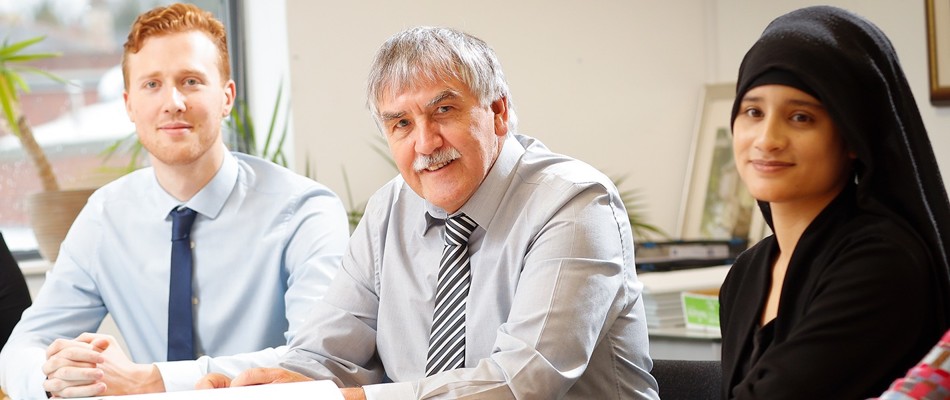Collaborating through Covid
Back
Imagine this: a rare opportunity to do some quality research in the FE environment, conducted by practicing teachers and managers, truly collaborating with other like-minded colleges. Sounds like a luxury, a kind of educational nirvana. Show me where to apply!
Now imagine this: a complex schedule of research and delivery involving around 30 individuals across five colleges producing some 20 products in the middle of a global pandemic that re-wrote everyone’s priorities and calendars.
Now, don’t get me wrong; FE as a whole is a marvel of invention and an old hand at reacting to outside influences, knuckling down, and making it work, but this new environment was outside of everyone’s experience. Who, seriously, would think of starting a collaboration project in the midst of national turmoil? Well, we did.
The reality is that our strength and endurance, good humour and spirits, fortitude and nous were all put to the test and found to be sound. Of course, when we initially applied to the College Collaboration Fund (CCF) for support in creating a set of shared resources, the future looked ‘normal’, even though at the same time a poorly pangolin was being stacked up for sale in a market square on the other side of the world. The unfolding epidemic bled across the globe and we all know the story from there.
So, what do you do? You don’t stop what you’re doing. Sure, you move your whole college online, but you’ve still got business to do. Every young person deserves our absolute best. The refocus from colleges as we retrained staff, re-visioned lessons, and reimagined how we could teach was like a tangible force, a driven movement determined to deliver learning. Commendable efforts were witnessed all around. We even ran a testing centre. But what about the projects we conducted as part of the CCF in the midst of all this? The experience gave us something, and we learned a few lessons.
Firstly, let’s look at community. From the start, we were never going to give in: the idea of stopping or not doing it could never be seriously entertained, it’s just not in the FE mindset. The sense of kinship and support we all normally feel when calibrating our own performance in a benchmarking visit was somehow very real and amplified in our CCF collaborations and essentially invaluable. We never met; well, not in person, but the Teams meetings, with everyone lined up like celebrity squares (showing my age) quickly became the norm. The mutual support and friendly nature of exchanges consolidated a feeling of being in this together. The sharing of experience, checking how each other were doing, and asking advice from the group, really became a textbook model of collaboration and it was rewarding.
How about lessons learned? Many of you reading this have, I’m sure, worked on a number of projects and know how they can turn out if they aren’t slick operations. We quickly learnt as a college that the key to success in this sort of endeavour is a core of neat and well-defined products (or outputs), and excellent communication. We kept things small, tidy and doable, with little room for confusion, loss of project focus, or opportunities to ferret off down rabbit holes. The concise nature of the projects, combined with regular monthly meetings, kept the operation manageable and able to flex to other demands. Communications were good too, with all college administrators involved from the start (those are formidable people) enabling quick and clear comms to flow.
I guess our real key, apart from the calibre of the people involved and our resilience, was the projects themselves. We had all thought of areas we wanted to explore and had ‘meaningful’ as our guiding term. We wanted to work on the things that concerned us: empowering non-subject specialist parents so they could support their young people, finding pathways through the mass of available technology for learners, or building models for networks of like-minded teachers. Yet the results and experience always had to be meaningful: to have purpose and be significant. Ultimately the projects were strong enough to cope with a pandemic and come out the other side with a result. We made relationships, shared our knowledge, helped each other and built things to help others – that’s kind of what collaboration is about isn’t it?
For us (despite that global thing) the CCF experience was worth it and ended with rewards beyond our original expectation. If you are considering an application to the College Collaboration Fund this year, my top advice would be: keep your projects neat, make sure they mean something, allow some contingency time in your planning (you never know what may happen!), use the CCF support on offer and communicate regularly.
If we’d known the whirlwind of the last year was coming I think we’d still have done it. A chance to work with others in the sector is always worth taking. Oh, and get the emails of those administrators in your contacts list; they have magical properties that make things happen.
Matt Reynolds is the Vice Principal of Teaching and Learning at Cirencester College. Cirencester College were the lead College in a CCF group that included the partners Brockenhurst College, Henley College, Petroc College and Strode College.

